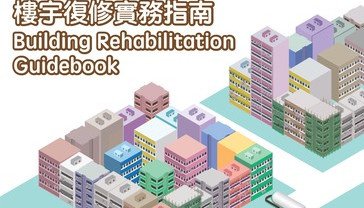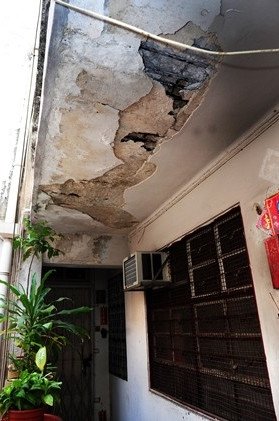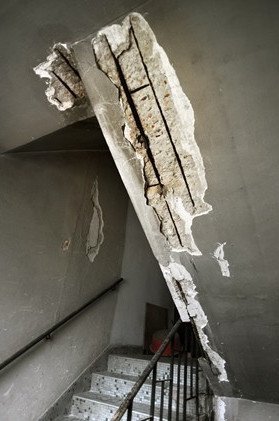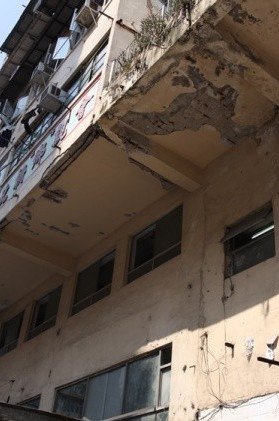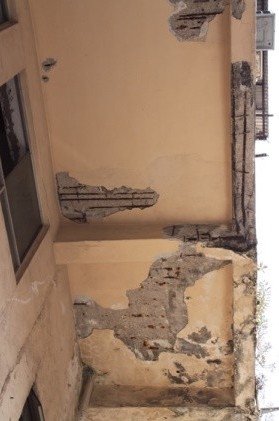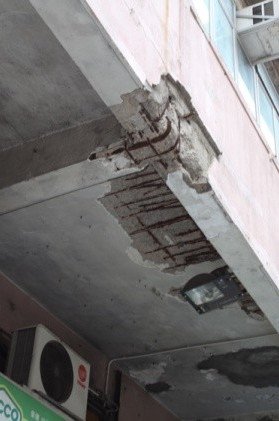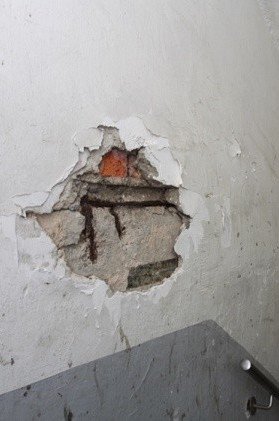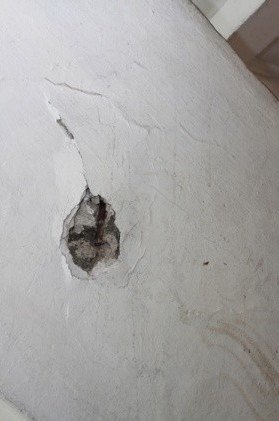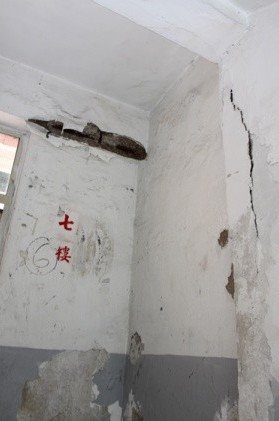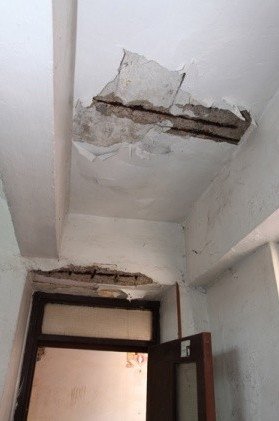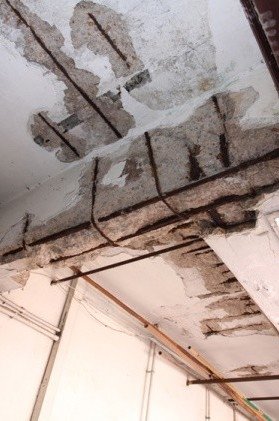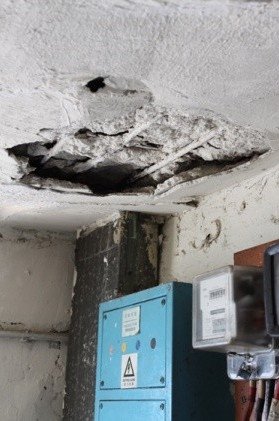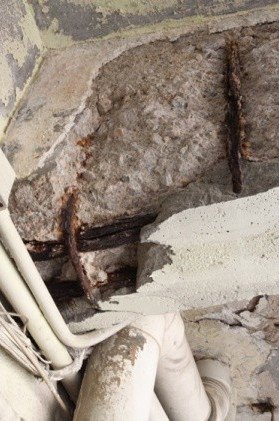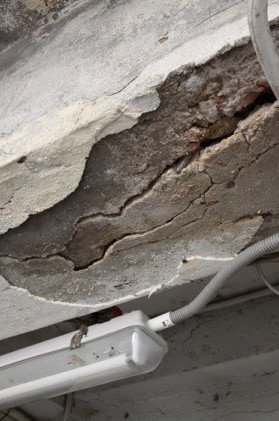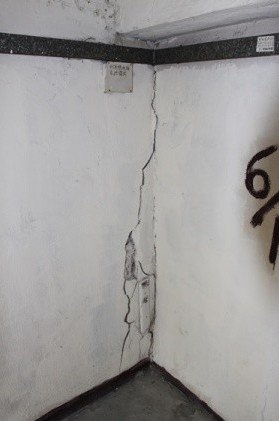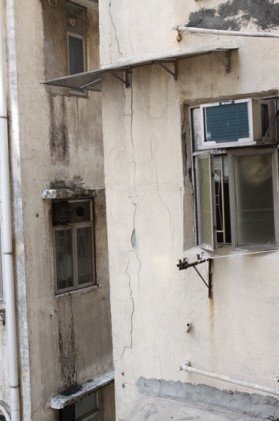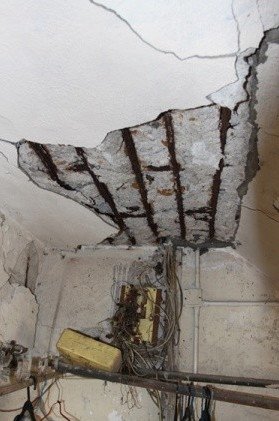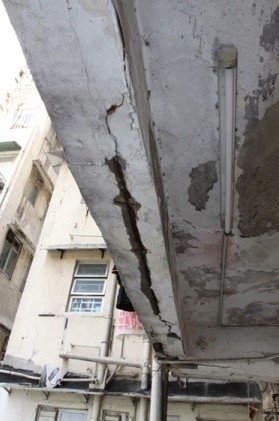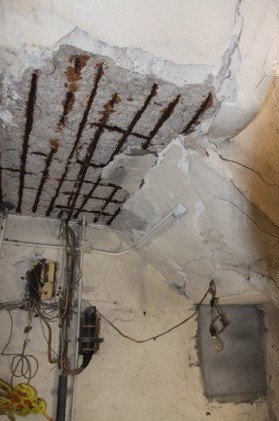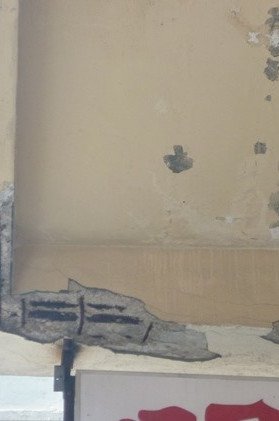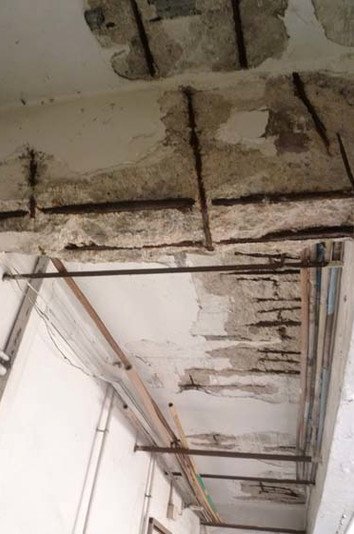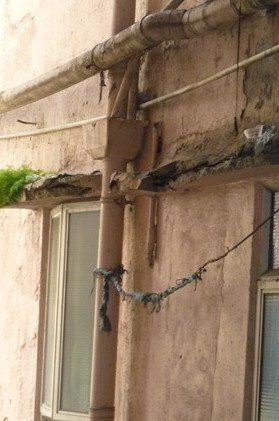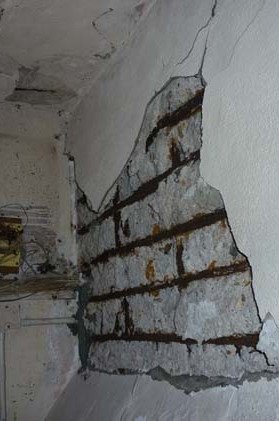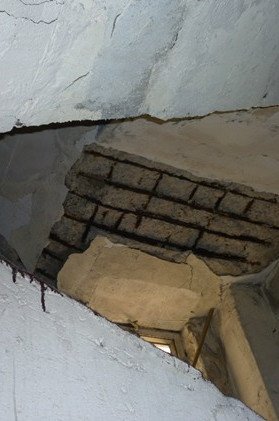Cause?
Defective concrete as a result of aging is commonly found in old buildings. Persistent water leakage may affect the steel reinforcement. Weak concrete caused by the use of salty water in concrete mix, or overloading are also common causes in spalling. In addition, structural cracks may be caused by many factors, e.g. excessive movement of the building structure; unwanted ground settlement; serious overloading; weaknesses caused by corrosion/deterioration of materials; damage caused by accidents; poor design/ construction, etc.
How to handle?
Damaged or defective concrete is to be hacked off down to sound substrate and patched up with appropriate repair mortars to protect the steel reinforcement from rusting. Should circumstances arise that the diameters of the reinforcement bars are found substantially less than their original sizes after the “rust shells” have been removed, addition or replacement of steel bars is required.
When the defective concrete is extensive and penetrates beyond the steel bars, partial or complete demolition and re-casting of the affected members may be required. Under such circumstances, a building professional such as a Registered Structural Engineer is required to give advice on the details of the materials and construction methods, and supervise the works. Precautionary measures such as installation of temporary propping may be required.
Legislation?
Buildings Ordinance (Chapter 123) - Buildings Department (BD)
- Investigation Order (Section 26A)
It is served upon building owners or OC where early signs of building defects are detected and requires detailed investigation to identify the extent and the nature of the dilapidation/defects. Owners/OC are required to engage an Authorized Person (AP) to carry out the investigation and to submit the remedial proposal to the BD for acceptance.
- Repair Order (Section 26)
It requires building owners or OC of buildings which are found to bear serious defects likely to cause risk of injury or damage, to carry out the required repair works and to render the buildings safe. Owners may be required to engage an AP to supervise the remedial works to the satisfaction of the BD.
- MBIS Notices (Section 30B) (Mandatory Building Inspection Scheme)
It requires building owners or OC of buildings aged 30 years or above (except domestic buildings not exceeding 3 storeys) to appoint an Registered Inspector (RI) to carry out the prescribed inspection and supervise the prescribed repair works found necessary of the common parts, external walls and projections or signboards of the buildings.





